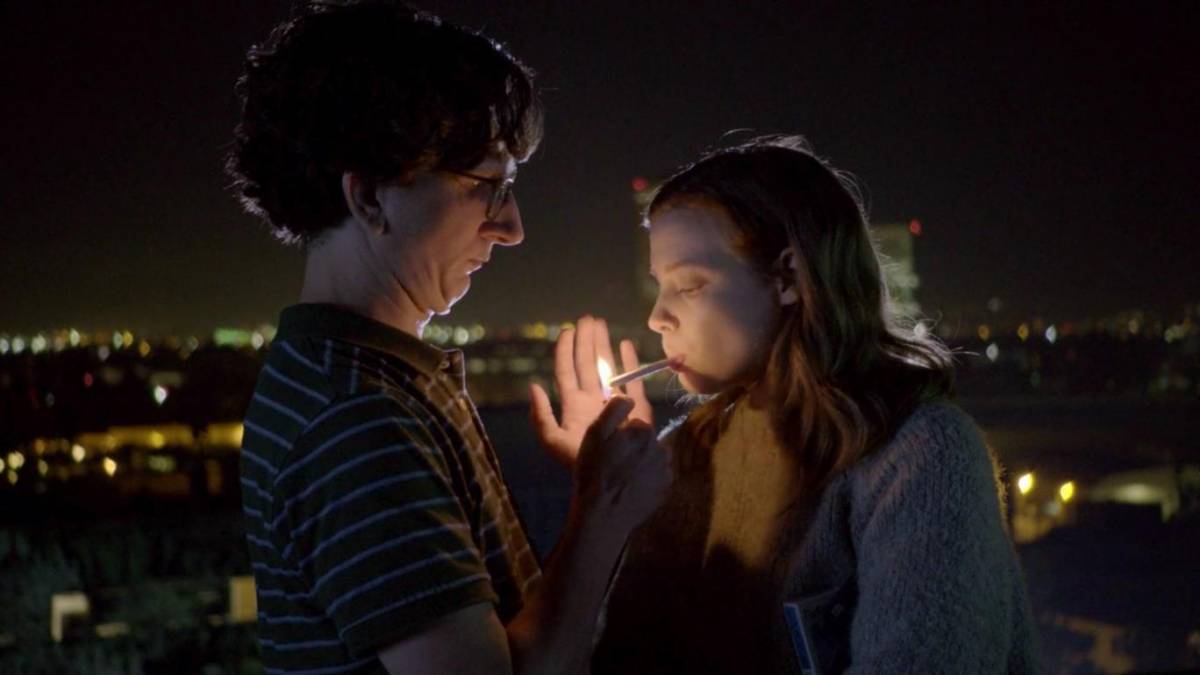
Love, Judd Apatow’s polarising show focusing on what real relationships are like, recently returned for its second season. The first split viewers’ opinion with some lamenting the knowing indie feel and others applauding how grounded it was. The finale divided viewers in particular, myself included.
Luckily, the second season picks up exactly where the first left off, showing the aftermath of Gus’ selfish attempts to get back with Mickey. She shoots him down while keeping him close, leading to a retread of the show’s first season for half of the second. Almost miraculously, however, the chemistry between the two leads helps Love to avoid second album syndrome to create a lo-fi tale that’s relatable to anyone who’s played the love game.
And a game is exactly what the series feels like, as if Gus and Mickey are sparring with each other, chipping away armour and gradually wearing each other down until they fall into the inevitable: a relationship. Despite going dramatically cold on Mickey during the second half of the first season, Gus is a lovestruck puppy this time around, doing everything he can to keep the damaged Mickey from falling apart, often to her chagrin.

As the series progresses, Mickey grows as a person, though she still shows the signs of being a toxic individual with alarming regularity. With more episodes to play with, the show takes its time to explain (without excusing) why Mickey is how she is. Even though he may appear to be the trope-tastic “nice guy” who are ten-a-penny in romantic movies and shows, Gus is anything but. Both of these people are real and neither of them will be used as inspiration for Hallmark cards.
It’s this that makes Love hard to love for so many. It battles against the standard formula of romance, showing what happens after the guy makes it to the airport on time to stop the girl he loves from leaving. There’s comfort in seeing the same kind of romantic story play out over and over again, but with Love, it revels in how uncomfortable it is, how hard it hits home. These people are real, they’re supposed to be you.
Season 2 of Love shows the reality of relationships better than any show I can think of. Whether it’s feeling out of sorts amongst your partner’s friends, squabbling over the stupidest little thing that will make for a funny story later, or all the doubts that come with a person being a part of your life, Love will resonate with anyone who’s in it for the long haul. Love itself isn’t all about the montages, flowers, and dances set to Marvin Gaye, something Judd Apatow et al seem to be well aware of.

If you’ve watched anything from the show before now, you’ll know that it isn’t going to be a adrenaline-pumping affair, focusing on nothing at all for long stretches of time. Scenes progress when they want to, dialogue doesn’t always end cleanly, and sometimes it’s just five minutes of people sat on a couch and shooting the breeze. By bravely going with a narrative that has no goal except to thrust you into the lives of two broken people, Love flourishes.
With more episodes to play around with, Love looks at other relationships, none of which are perfect. Bertie, Mickey’s Australian housemate who appears to be walking and talking Valium, has her own strife in the form of the loser Randy, one of Gus’s friends. After hooking up, Bertie almost accidentally falls into a relationship with the jobless and hopeless Randy. Although the early signs are promising, Randy’s issues and Bertie’s pushover personality makes them hard to watch. Again, Love shows the reality of relationships, further evidenced by the troubles between other periphery couples.
But none are as interesting as the pair at the show’s center. The chemistry between the “couple” is electric and malignant at once, both using each other for self-improvement. Mickey thinks Gus is a nice guy (he isn’t) who can help her change her life, Gus thinks Mickey is the cool girl (she isn’t) he could never get who will give him the excitement his relatively boring life needs. They aren’t going to make it: they know it and you know it, wincing behind your fingers as each argument and personality clash unfolds.

While it remains a show about two people, Love’s second season feels like a platform for Gillian Jacobs to shine. Her character goes through the biggest change, which I won’t spoil here, while Gus keeps being Gus until many episodes in. The growth of Mickey as a real, functioning adult isn’t gratuitously thrust in the face of the viewer, it’s slowly built up, but the real Mickey, the girl driven by impulses and fears, is never far away. Jacobs is a talent, one that deserves a closer look by awards boards, and season 2 of Love cements that.
Love is an usual watch in that -apart from Bertie and the Gus’s goofy friend Chris- its characters are hard to like. While Gus and Mickey play out their seemingly doomed romance, both do contemptible things and act like damaged goods. Mickey is an addict, intentionally playing with people’s emotion and prone to aggressive outbursts. Gus, despite appearances, is deeply cynical and hateful; there’s an inner darkness to him that’s subtly hinted at throughout the series. By making its two leads unlikeable, Love knows that it won’t appeal to everyone and even seems to relish in turning viewers away. But once you can deal with that, Love is as addictive as dopamine itself.
Some of the coverage you find on Cultured Vultures contains affiliate links, which provide us with small commissions based on purchases made from visiting our site.

